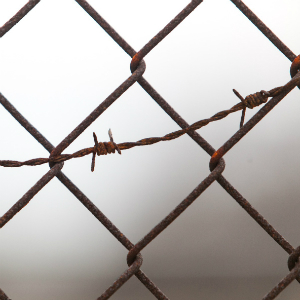Fix or ditch mandatory sentencing: ABA
Some mandatory sentencing laws should either be amended or ditched completely, the Australian Bar Association (ABA) has urged.

ABA President Patrick O’Sullivan QC yesterday released a statement calling for the government to address the disproportionate rates of Indigenous incarceration.
To continue reading the rest of this article, please log in.
Create free account to get unlimited news articles and more!
At a meeting with Federal Attorney-General George Brandis this week, Mr O’Sullivan urged a national commitment to action to deliver better justice outcomes for all.
“Australia’s Indigenous incarceration rate is one of the most challenging human rights issues facing the country today […] and is a matter of deep concern to the Australian Bar Association,” Mr O’Sullivan said.
“Amend mandatory sentencing and watch Indigenous incarceration rates fall.”
The ABA has put forward three proposals with respect to mandatory sentencing, claiming smarter administration of justice would deliver cost savings.
“Even a 10 per cent reduction in the Indigenous imprisonment rate would save more than $10 million a year,” Mr Sullivan said.
“There are on average 30,000 prisoners in Australia at any one time, a quarter of them Indigenous, costing the country $3 billion a year."
The first of the ABA’s recommendations is to amend or remove mandatory sentencing laws which apply to offences such as minor assault, driving offences and minor theft. According to the ABA, such offences have the biggest impact on Indigenous people but deliver minimum effects.
The ABA has also called for review of default imprisonment as a mechanism to enforce fines and serious investment in rehabilitation projects.
The proportion of Indigenous prisoners has almost doubled since the Royal Commission into Aboriginal Deaths in Custody (RCADIC).
Incarceration rates for Indigenous prisoners are at least 16 times higher than the rate of other Australian prisoners.
For women and children the picture is particularly bleak, with Indigenous women 20 times more likely and children (aged between 10 to 14 years) 30 times more likely to be locked up.
“It is a shocking fact that an Indigenous young person who has served a prison sentence is more likely to return to prison than finish school. And on any given night in Australia, over half of all young people in detention are Indigenous,” Mr O’Sullivan said.
Mr Sullivan plans to meet with other state attorneys-general throughout the year to continue lobbying on the issue of Indigenous incarceration.






